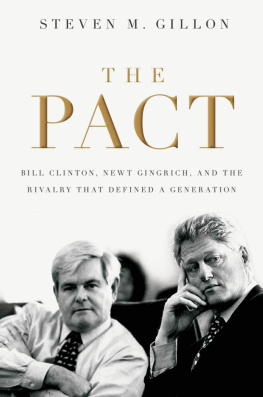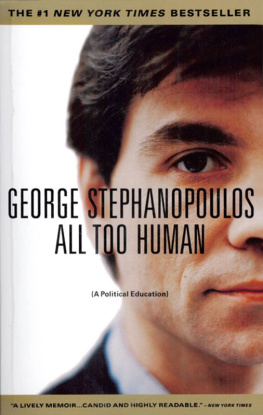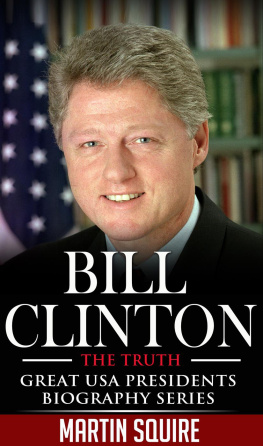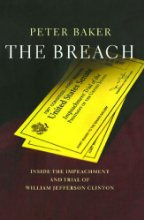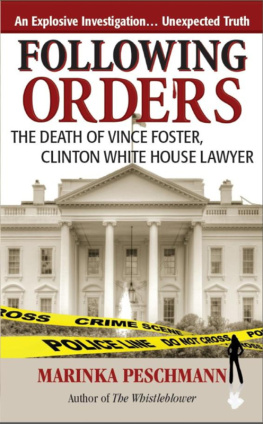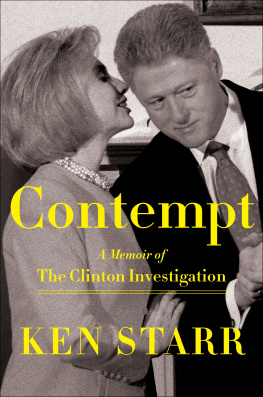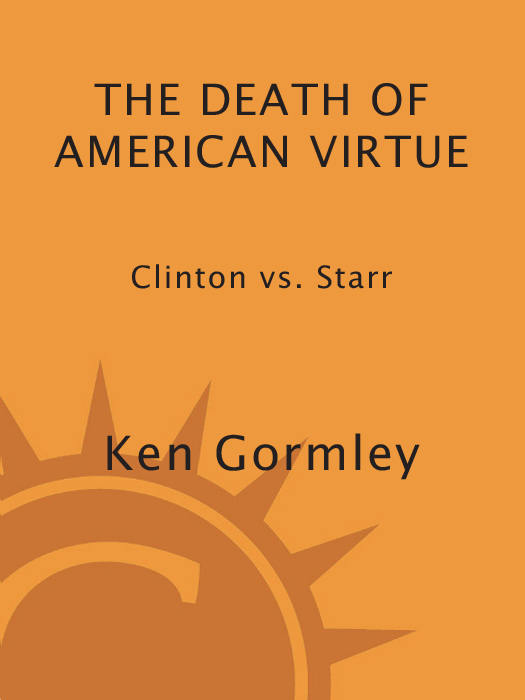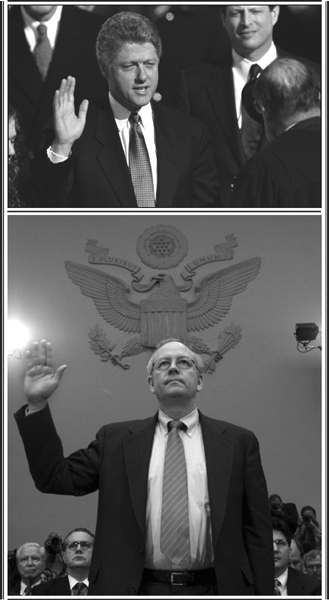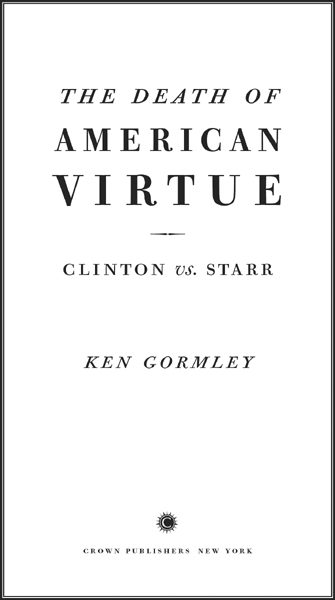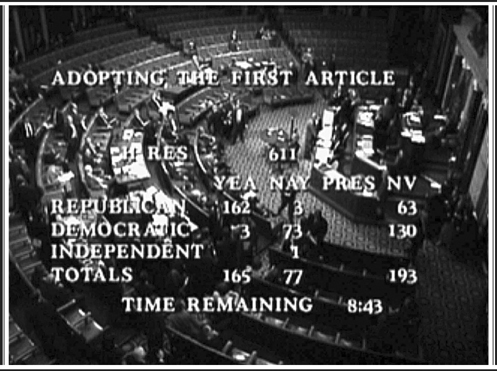C ONTENTS
CHAPTER 1:
2:
P ART O NE :
3:
4:
5:
6:
7:
8:
9:
P ART T WO :
10:
11:Danny Traylor: Can We Settle for Five Thousand
Dollars?
12:
13:
14:
15:
16:
17:
P ART T HREE :
18:
19:
20:
21:
22:
23:
24:
25:
26:
27:
28:
29:
30:
31:
P ART F OUR :
32:
33:
34:
35:
36:
37:
38:
39:
40:
41:
42:
43:
44:
P ART F IVE :
45:
46:
47:
48:
49:
50:
51:
52:
PRELUDE
 COLLISION IN THE CAPITOL
COLLISION IN THE CAPITOLCHAPTER
1
 T HE I MPEACHMENT V OTE
T HE I MPEACHMENT V OTEI t was an unusual day for a vote that might extinguish a presidency. Congress rarely did official business on Saturdays, let alone just before the Christmas holiday. But on this morningDecember 19, 1998with a chilly rain pelting the dome of the Capitol, lights were blazing in every office on the House of Representatives side. Fax machines spewed out confidential messages. President Bill Clinton had just launched a surprise attack in the Persian Gulf against Iraqi dictator Saddam Hussein, prompting cries of Wag the Dog! by angry Republicans. Now, after a days postponement out of deference to military troops, the appointed hour had arrived.
Henry Hyde, distinguished Republican from Illinois, strode to the wooden lectern. He was wearing a dark blue suit and red tie befitting the seriousness of the occasion. As chairman of the powerful House Judiciary Committee, the white-maned Congressman Hyde had been responsible for drafting all four articles of impeachment against the forty-second president: Article I accused William Jefferson Clinton of lying to a federal grand jury in connection with the Monica Lewinsky affair; Article II charged him with lying under oath in the sexual harassment lawsuit filed by Paula Jones, an Arkansas employee when Clinton was governor; Article III alleged obstruction of justice and subornation of perjury; Article IV alleged a general misuse and abuse of Clintons high office.
Chairman Hyde would remember this as a somber, somber day. The Republicans, herded into line by Majority Whip Tom DeLay, were optimistic that they could push through at least one article. Yet, as Hyde would admit five years later to the day, seated in his suburban Chicago office surrounded by a careers worth of political memorabilia, he felt that he had a tiger by the tail. He had no idea what would happen when he wrestled that tiger to the ground, or which combatant would survive the struggle.
A strange unease gripped the House chamber. Pornographer Larry Flynt, publisher of Hustler magazine, had just run a full-page ad in the Washington Post offering a million-dollar bounty for information leading to evidence of illicit sexual relations involving members of Congress, especially prominent Republicans. Flynt had dubbed the Starr Report more depraved and scandalous than any act Bill Clinton had committed. Now the pornographer had set out to expose the hypocrisy of this impeachment drive. As the seventy-four-year-old Hyde stepped to the microphone, he cursed how things had taken such an ugly turn.
It was bad enough that Hyde himself had recently been the victim of an attack by the liberal Internet publication Salon. That magazine had revealed that Hyde had engaged in an adulterous affair with a hairdresser named Cherie Snodgrass in 1965, back when Hyde was forty-one years old. Now, thirty-three years later, with his wife Jeanne dead of breast cancer and his four grown children raising children of their own, Hyde had been forced to confess his youthful indiscretions, the most humiliating experience of his four decades in public life.
In this city infested with political vipers, it seemed that no politician was safe. A day earlier, Flynts offer of blood money had ensnared Hydes colleague, Representative Bob Livingston (a Republican from Louisiana), the man slated to replace Newt Gingrich as Speaker of the House in the wake of the disastrous midterm elections in November. Capitol Hills Roll Call now reported that Livingston had engaged in a host of extramarital liaisonswith a female judge in Louisiana, with a lobbyist, and with a member of his own staff. Representative Livingston had tried to blunt the attack, calling Flynt a bottom feeder. To this, Flynt replied smugly, Well, thats right. But look what I found when I got down there. Everywhere one turned, there appeared to be destruction, carnage, bodies littered across the road. On this historic Saturday morning, Henry Hyde was still determined to do his constitutional duty.
Democrats and Republicans took turns at the microphone, alternately defending and excoriating President Bill Clinton. Chairman Hyde yielded two minutes of time to his friend, Speaker designate Bob Livingston. What Livingston would say, under these odd circumstances, Hyde had no idea.
You know, Hyde whispered to Livingston as he brushed past him stiffly, these things blow over.
Speaker pro tem Ray LaHood (R-Ill.), a huge American flag draped behind him, wielded the gavel like a railroad man prepared to pound steel ties into the track. He pronounced somberly: Proceed. Livingston arranged his typed remarks on the lectern. Tall, thin, silver-haired, and famous for his unflappable demeanor, Bob Livingston was a model of congressional comportment. Today there was something ill at ease about his appearance.





